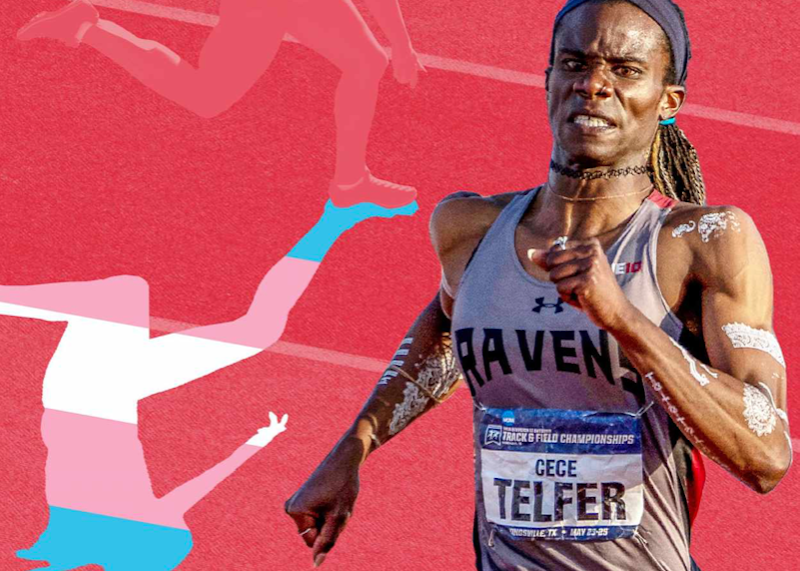As the issue of males competing in girls’ sports becomes more prominent in America, public opinion has shifted right. While red states ban the practice, it’s more common in blue states as an increasing number of children identify as transgender—and people don’t like it.
A Gallup poll released this week found that 69 percent of Americans think transgender athletes should compete in sports based on what they actually are, not their so-called gender identity. So if someone is a boy but says they’re a girl, people want them competing against the boys, not girls. The poll also found that public opinion has shifted right by seven points in just two years on this issue. Notably, a PRRI poll released last week found that 65 percent of Americans say there are two genders, up from 59 percent in 2021.
In the past few years, more instances of dominant transgender athletic participation have been reported, especially by right-wing alternative media. Such outlets deserve credit for blowing the issue up. Sometimes they force the mainstream media to cover it, which is signicant because the liberals covering high school sports mostly ignore it. A former Boston Globe colleague of mine never made mention of how the two males who were dominant in track in Connecticut in the late 2010s weren’t girls.
I’ve written in the past that I thought people overestimated instances of transgender athletes dominating sports. I also said I opposed anything that affirmed a so-called transgender identity merely because I reject the idea that someone can change their gender. I’ve covered high school sports since 2015 and attended high school from 2011 to 2015, so I was writing from experience. And while I still see affirmation as the chief issue here, there’s more evidence of transgender athletic dominance happening. Previously, lawmakers struggled to name instances of it occuring in their respective states, but such people dominate now. If I had to make a prediction, boys will win girls’ track state championships in New Hampshire and Massachusetts next school year (and possibly other states).
Last month, transgender freshman Maelle Jacques came in second in the New Hampshire Interscholastic Athletic Association Division 3 girls’ track state championship in the 1600-meter run. If you’re coming in second place in an event as a freshman then odds are you’ll win a state title at some point. That’s especially true of a male athlete competing against girls because boys continue developing physically later than girls.
During the winter, junior Chloe Barnes, another male, helped Brookline High win a Massachusetts Interscholastic Athletic Association Division 1 girls’ indoor track state title. I broke the state title aspect for NewBostonPost a couple of months after TB Daily News, a right-wing website in Massachusetts, broke the story of Barnes' identity.
Barnes had a fourth-place finish in the 55-meter hurdles. Barnes, who also runs cross country, has a chance to dominate next year. Brookline won a state title in cross country last year, but Barnes was a junior varsity runner, albeit a good one. It means Barnes could win some state title again next year, whether a team title in cross country, indoor or outdoor track, or an individual title in a hurdling or relay event.
I’m familiar with an instance of a male being on a high school girls’ basketball team that won a state championship in Massachusetts, but the family won’t admit it. Someone close to the team said to someone I’ve spoken with that there’s a transgender player on the team. Unfortunately, Massachusetts is a two-party consent state. Otherwise, this would be easy to report. I’ll further research this instance and others in my state soon. It’ll require people to provide not only tips, but proof, and if people aren’t open about their identity, that complicates the situation.
Americans should expect public opinion to continue moving right on this issue because it will impact more and more of our communities. While the integrity of girls’ swimming is hardly a top issue on any voters’ mind, except for maybe Riley Gaines, it’s a piece of a larger issue, and it’s encouraging to see the American people understand the problem, at least in this instance. By Election Day in 2024, it wouldn’t surprise me if 75 percent of the country opposes boys in girls’ sports, because there will be more headlines about it in the news in the next year and a half.

